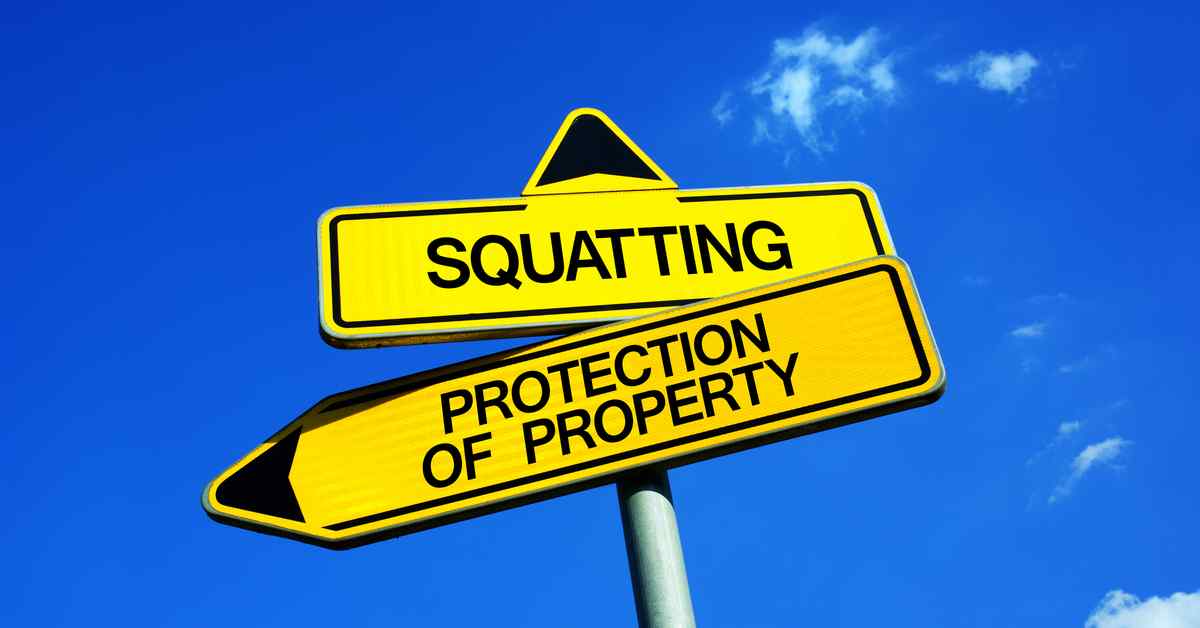Table of Contents
Quality Service Guarantee Or Painting Free

Get a rental agreement with doorstep delivery

Find the BEST deals and get unbelievable DISCOUNTS directly from builders!

5-Star rated painters, premium paints and services at the BEST PRICES!
Loved what you read? Share it with others!

Doctrine of Adverse Possession: What It Means and How to Claim Property Rights in 2026
Table of Contents
In India, owning a property is not an easy task. After saving up enough to buy a decent property, owners are constantly threatened with losing their property through scams or disputes. Did you know? If someone has occupied a property for over 12 years, they will be favoured in the court of law over the owner. This is known as the adverse possession law. Find out how adverse possession of land works in India and how to file an adverse possession claim.
What is Adverse Possession in India?
As mentioned earlier, Adverse Possession in Land Law is a legal principle that was introduced to the Indian real estate markets and legal systems by the British Rulers.
Adverse Possession Meaning:
Quality Service Guarantee Or Painting Free

Get a rental agreement with doorstep delivery

Find the BEST deals and get unbelievable DISCOUNTS directly from builders!

5-Star rated painters, premium paints and services at the BEST PRICES!
Adverse Possession means acquiring a property through unsolicited means. However, it’s an accepted method and common in India. According to the law of adverse possession, if a person continues to be in possession of a property for 12 years, they are granted the ownership rights to the property.
In simple terms, if a tenant continues to occupy a unit for 12 years without any interruption from the owner, they get owner status for the property. The law was brought in to improve land usage, but over the years, adverse possession has given way to advance possession, a form of hostile possession in which the rightful owner is denied any claim to their property. Property owners must be aware of these adverse possession laws to avoid any hassle or dispute.
Adverse Possession Law
The law of Adverse Possession in India is governed by the principle of the Limitation Law of 1963. As per the adverse possession under the Limitation Act, if over a due course of time or period, if an appeal is not made to revise any limitation, the current scenario of titles continues. Regarding adverse possession, the period is defined as 12 years. According to the Indian legal system, if a property owner fails to make a claim towards their property for 12 years, and the same tenant continues to occupy the property for 12 years, the ownership rights to the property are transferred to the tenant. These are the basic rules of the Adverse Possession Limitation Act in India.
Essentials to Prove Adverse Possession
If one intends to establish adverse possession in the Limitation Act of 1963, the burden of proof will rest on them. To successfully establish adverse possession, the following elements must be proven in court:
- Date of possession: The date on which adverse possession in India of the property began must be established. This date is critical as it determines the 12-year statutory period required for adverse possession.
- Knowledge of owner and neighbours: It is necessary to demonstrate that the true owner had knowledge of the possession and the date when they became aware of it. Additionally, it is essential to establish that immediate neighbours were aware of the possession and the date when they became aware of it.
- Peaceful possession: The possession must have been peaceful and not obtained by coercion. The possession must have been in opposition to the true owner's expectations.
- Lack of action by the owner: It must be proven that the true owner did not take any action against the possession despite having knowledge of it. It must be proven beyond reasonable doubt that the owner was aware of the possession.
- Exceptions: It is also necessary to demonstrate that none of the exceptions to the rule of adverse possession are applicable in the case.
- Continuous possession: It must be established that the possession of the property was continuous without any interruptions by the owner or any other person.
What are The 5 Requirements for Adverse Possession?
Under some circumstances, the legal concept of adverse possession lets someone claim ownership of land or property after having possession for a designated duration. To properly claim adverse possession, however, a number of key legal criteria have to be satisfied, and the documents needed for adverse possession must be submitted. These requirements guarantee that the claim is legally accepted and legitimate.
Continuous and Uninterrupted Possession
Continuous, uninterrupted possession is, first and most importantly, necessary for unfavourable possession. The claimant has to have the property for the specified term free from intervention by the owner. While for government property, it is 30 years, for private land, the possession must remain for a continuous 12 years as per the adverse possession law. The claimant has to live on the land without any legal action launched by the original owner to recover it during this period. The claim for adverse possession is void should there be a break in possession or the correct owner file legal action within the term.
Hostile or Adverse Possession
As per the adverse possession limitation act, possession has to be hostile or negative to the rights of the original owner. The claimant's ownership is, therefore, against the interests of the genuine owner and without their approval. Possession should not be friendly or based on a lease or arrangement with the original owner. The claimant has to treat the property as their own, and their acts must show their intention to permanently possess and control it against the rights of the legitimate owner.
Exclusive Possession
Adverse possession also requires the claimant to be exclusively possessive of the land. The property must, therefore, be in the exclusive control of the claimant and not shared with the original owner or those with rights to it. Actions like fencing the land, paying property taxes, or upkeep of the property help to show exclusive ownership.
Clear and Notable Possession
As per the law of adverse possession, the property must be open and well-known; hence, the original owner should be able to see it clearly. The claimant cannot covertly or without notice hold the property. The original owner, or anybody looking over the property, should be able to perceive that someone else is using it clearly. The claimant should, for instance, consistently utilise the property in a manner that is obviously visible and apparent or make modifications to the land or constructions.
Property Tax Payments
Sometimes, the claimant might also have to show that they paid property taxes in order to show their desire to regard the land as their own. Although paying taxes on the property might prove that the claimant has exercised control over the property for the necessary duration and with the goal of ownership, this is not an essential need in all governments.
When Can Adverse Possession Not Be Claimed?
Adverse possession may not be claimed in certain circumstances, as exceptions exist in the doctrine of adverse possession.
- The possessor cannot claim adverse possession if they have no ulterior motive or animus possidendi to possess the property exclusively, or if there is a fiduciary relationship between the landlord and tenant.
- If the landlord permitted the tenant to possess the property, it would not be considered adverse possession. However, if the landlord terminates the permissive possession and the tenant does not vacate the property, they may be liable for wrongful possession and may need compensation.
- Adverse possession cannot be claimed if there is no valid claimant for the property, i.e., if nobody is claiming ownership of the property. In such a case, the right over the property cannot be acquired through adverse possession.
Documents Required to Prove Adverse Possession in India
To prove adverse possession in India, the following documents are typically required:
- Property deed or title: The deed or title of the property, along with the survey number and details of the location, is essential to establish the ownership of the property.
- Tax receipts: The property tax receipts for the duration of the adverse possession prove that the possessor has been paying taxes and has had the property.
- Utility bills: The utility bills like electricity, water, and gas bills for the duration of possession can help establish the exclusive possession of the property.
- Affidavits from witnesses: Affidavits from neighbours and witnesses who have seen the possessor in exclusive possession of the property for the statutory period can be used to prove adverse possession.
- Other relevant documents: Any other documents that establish the continuous, exclusive, and peaceful possession of the property by the possessor can be used as evidence to prove adverse possession.
Exceptions to the doctrine of adverse possession
- If the owner is a minor.
- If the owner is mentally unwell.
- If the owner serves in the armed forces.
Property disputes continue to rise in the country and owners should be very careful to avoid such circumstances. Being aware of these laws will help the owner learn how to prove adverse possession in a court of law and how to prove possession of land.
How Does Adverse Possession Work?
Adverse possession is a legal process that allows a person to claim ownership of land they do not hold legal title to, provided certain conditions are met. This can occur intentionally or unintentionally:
- Step 1: A person (the “adverse possessor”) takes actual, physical possession of land that belongs to someone else. This can happen through actions like living on the land, building a structure, farming, or fencing it.
- Step 2: To make a valid claim, the possession must meet all the legal requirements.
- Step 3: The adverse possessor must meet all the criteria for a specific amount of time, depending on the jurisdiction.
- Step 4: If the legal owner does not evict the possessor, sue for trespass, or otherwise assert their rights during the statutory period, they may lose their legal claim to the land.
- Step 5: In many cases, the possessor must file a quiet title action in court to gain formal ownership and legal title. The court will review evidence to determine if all elements of adverse possession have been met.
- Step 6: If the court agrees, the adverse possessor is granted legal title to the property. The court’s decision is recorded in land records, officially transferring ownership.
Steps to Save your property from adverse possession: How to Prove Adverse Possession in India?
Although it’s considered an illegal act, the Indian legal system continues to reward the principles of adverse possession based on the sole fact that the owner neglected the property for 12 years. This could be due to the sheer lack of knowledge on the owner’s part, and there are instances where the judiciary has sided with the owner. However, the trial went on for years and the hassle faced by the original owner could have been avoided.
The honourable Supreme Court on Adverse Possession in 2019 stated, "By perfection of title on extinguishment of the owner’s title, a person cannot be remediless. If the owner has dispossessed him after having lost the right by adverse possession, he can be evicted by the plaintiff by taking the plea of adverse possession.
Similarly, any other person who might have dispossessed the plaintiff having perfected title by way of adverse possession can also be evicted until and unless such other person has perfected title against such a plaintiff by adverse possession. Similarly, under other Articles, also in case of infringement of any of his rights, a plaintiff who has perfected the title by adverse possession, can sue and maintain a suit.'
To prove Adverse Possession, these terms need to be explored:
- Continuity in adverse possession: If a property is taken through adverse possession, the possession should be uninterrupted for the specified period of 12 years.
- Actual possession: The possessor must occupy the property completely through actual possession. Actual possession includes fencing the property, construction of the house, grazing cattle, and erection of a shed on the land.
- Exclusive possession: The occupier should prove sole ownership for 12 years towards the property.
- Open possession: The possession can’t be forced without informing the owner or through their license. The possessor must prove the following in front of the court:
- The date of possession.
- The possession was known to the public.
- The nature of the possession.
- The continuity of the possession.
- The duration of the possession.
These are the important requirements to prove adverse possession
Legal Procedures to File an Adverse Possession Suit
Here are the legal procedures to file an adverse possession suit:
- Before filing, ensure you meet the essential criteria, such as actual, open, exclusive, hostile, and continuous possession for the required statutory period.
- Submit the required documents like photographs or videos showing occupation or improvements, property tax receipts or utility bills in your name, and witness statements from neighbours or others aware of your possession.
- Consult a lawyer experienced in property and adverse possession law to guide you through the process and help prepare your case.
- Sometimes, contacting the legal owner to settle or obtain permission may avoid lengthy litigation.
- Draft the complaint or petition.
- Submit the complaint to the local civil or property court that has jurisdiction over the land.
- The owner may contest the claim, provide evidence, or file counterclaims. Both parties may engage in discovery, exchanging documents and witness statements.
- The court will review evidence, hear testimony, and consider legal arguments to determine if adverse possession elements are met.
- If the court favours the adverse possessor, it will issue a judgment quieting title in their name, officially recognising them as the legal owner.
- File the court’s judgment with the local land registry or property records office to update the ownership records.
Can Tenant Claim Adverse Possession?
Tenancy through lease or rental agreement is generally not considered under the adverse possession law in India. However, under certain circumstances, if the lease has expired or if the owner has defaulted on particulars mentioned in the agreement, the tenants have taken advantage of the situation to file for ownership through adverse possession. The set timeline for the owner to take action is 12 years. As soon as there is a breach in the contract, the owner should look for a way to evict the tenants to avoid adverse possession. If, after the termination of the agreement, the tenant has paid rent to the owner in any form, they can’t apply for ownership through adverse possession.
Tenant Rights After 10/12 Years in India
Under Indian law, tenants who have lived on a property for a protracted length of time may have specific rights. So, can a tenant claim ownership of property after 12 years? Tenancy's terms and circumstances might affect a tenant's rights at ten or twelve years of occupancy. The kind of their lease agreement and local legislation will determine the particular rights that renters are entitled to.
Rights Under Rent Control Acts
Under most rent control laws, tenants who have lived in a home for a considerable time, often ten or more years, are usually shielded from eviction. Many times, these rules restrict the grounds for eviction; renters may only be sent out in response to non-payment of rent, contract violations, or if the landlord really needs the property.
Adverse Possession
Sometimes, during a period of 12 years of continuous and unfavorable occupancy, renters might be entitled to claim ownership of the property. But this assertion is susceptible to the same criteria of adverse possession described above, including the necessity of exclusive and apparent possession.
Lease Renewal
Once their lease ends, long-term renters may be entitled to seek a renewal of their agreement, particularly if the original contract allows for such a renewal. Sometimes, if renters have lived in the home for a significant length of time, they might even be entitled to negotiate conditions, but a tenant cannot claim adverse possession.
Security of Tenure
A tenant who has lived on a property for a long period might potentially be entitled to stay under certain circumstances. We call this your entitlement to security of tenure. Ten to twelve-year tenants may be entitled to alternate accommodation or compensation should they be kicked out.
Right to Transfer Lease
Additionally, long-term renters are entitled to transfer or sublease the lease to another person. As per the adverse possession limitation act, this provision lets renters legally sublease the property or transfer the lease to another tenant.
Difference Between Adverse Possession and Right to Property
Two separate legal ideas are adverse possession and property rights. Their applicability and scope vary greatly, even if they look identical. Whereas the right to property guarantees protection for the owner against illegal deprivation, adverse possession deals with acquiring property via long-term use and occupancy. Let’s compare adverse possession vs property rights:
Adverse Possession
Adverse possession lets someone claim ownership of the property after continuous possession for a stipulated period, usually 12 years. The claimant has to show that the ownership was hostile, exclusive, and without permission of the legitimate owner. If the claimant satisfies the required legal requirements, they might even gain government property via adverse possession.
Right to Property
Under Article 300A of the Indian Constitution, a basic right guaranteed is the right to property. This right protects people against random government or other dispossessed of their property. This power is not unqualified; however, it may be regulated or constrained depending on the legislation or in line with eminent domain.
Adverse Possession Supreme Court Judgments
Several important rulings rendered by the Indian Supreme Court have helped clarify the adverse possession legislation. The adverse possession limitation act provides significant precedents and offers direction on how courts should view claims for adverse possession.
- K.K. Verma vs Union of India (1954): The Supreme Court stressed that the claimant of adverse possession had to establish continuous, uninterrupted possession free from intervention by the legitimate owner.
- Lal Chand vs Union of India (2002): If all legal requirements are satisfied, the Court said, thirty years of government land ownership might result in a valid claim of adverse occupation.
- R. v. Govt. of NCT Delhi (2009): The Court underlined that even 12 years of simple ownership is not enough. The claimant has to show that the ownership violated the rights of the original owner.
- State of Haryana vs Mukesh Kumar (2013): The decision underlined that adverse possession claims had to satisfy all legal criteria, particularly concerning government land.
- Amar Singh vs State of Rajasthan (2019): As part of the adverse possession claim, the Court underlined once again the need to show continued possession and tax payment.
Difference Between Adverse Possession and Homesteading
| Point of Difference | Adverse Possession | Homesteading |
| Ownership of Property | The property is owned by someone else, and possession is obtained unlawfully by the possessor. | The property has no legal owner, and ownership is obtained by being the first person to claim and use the land. |
| Transfer of Ownership | Ownership is transferred to the possessor after 12 years of continuous possession, provided that the true owner did not take any action to reclaim the property. | Ownership is obtained by the first person who claims and uses the land, regardless of the duration of possession. |
| Neglect of Original Owner | Ownership is transferred due to the neglect of the original owner to take action against the possessor. | There is no original owner to neglect or take action against the possessor. |
| Purpose | Formalises the legal concept of squatter's rights. | Formalises the traditional Homestead Principle, which allows individuals to acquire ownership of resources found in nature by using or possessing them. |
Adverse Possession Examples
Most of the rules and regulations of Adverse Possession are formulated through landmark cases. Let’s take a look at a few of these landmark cases and how they have shaped the current guidelines about adverse possession:
1. Amarendra Pratap Singh v Tej Bahadur Prajapati
“A person, though having no right to enter into possession of the property of someone else, does so and continues in possession setting up title in himself and adversely to the title of the owner, commences prescribing title into himself and such prescription having continued for 12 years, he acquires title not on his own but on account of the default or inaction on part of the real owner, which stretched over 12 years results into extinguishing of the latter’s title.”
This important guideline was derived from this historic case.
2. SM Karim v Mst. Bibi
This landmark case established that adverse possession must be continuous and without force, and a plea must be filed informing the period of the adverse takeover.
3. Karnataka Wakf Board v Government of India
It was established that the possessor needs to establish possession of 12 years without the motive of illegal occupancy but due to neglect by the property owner.
4. Dagadabai v Abbas Gulab Rustum Pinjari
In this landmark case, it was established that the possessor must admit ownership of the suit after informing the owner.
5. Mallikarjunaiah v Nanjaiah
The court stated, “Mere continuous possession, howsoever long it may have been qua its true owner is not enough to sustain the plea of adverse possession unless it is further proved that such possession was open, hostile, exclusive and with the assertion of ownership right over the property to the knowledge of its true owner.”
It is very evident that the laws are in a state of judicial flux and need a revival code rather sooner than later. The rising number of property frauds and disputes can be avoided if the system is revised according to a uniform code.
Book Your Expert Legal Services for your Property with NoBroker
The laws and guidelines related to adverse possession have changed constantly, and the verdict depends on the judicial bench. The rising number of property frauds and disputes can be avoided if the system is revised according to a uniform code. It’s advisable to avoid these circumstances. Contact the legal experts at NoBroker and get a detailed legal inspection of your property and documents. Click here to select a legal expert.
Frequently Asked Questions
Ans. Adverse Possession is a legal principle that states if a tenant has occupied the property for 12 years and the owner fails to take any action against that, the tenant is granted ownership rights towards the property.
Ans. Yes, adverse possession is legal in India and it’s followed to make sure a land or property is in continued use.
Ans. Exceptions in Adverse Possession Law:
If the owner is a minor.
If the owner is mentally unwell.
If the owner serves in the armed forces.
Ans. In Alabama, the period of occupancy for claiming ownership is set at 20 years. After that, a tenant can claim ownership through adverse possession.
Ans. The possessor must prove the following in front of the court:
The date of possession.
The possession was known to the public.
The nature of the possession.
The continuity of the possession.
The duration of the possession.
These are the important requirement to prove adverse possession
Ans. To prove possession of agricultural land, you must show that you have been using the land as a rightful possessor. This includes cultivating it, maintaining boundaries, paying land revenue, and having actual control over it.
Ans. Yes. The Supreme Court has repeatedly cautioned against misuse of adverse possession claims to grab land illegally. In several judgments, it has stated that adverse possession should not become a tool for land theft and that courts must examine such claims with strict scrutiny.
Recommended Reading

Franking Charges Explained: Meaning and Benefits
January 31, 2025
1116863+ views

Rectification Deed Format and Process in India 2025
June 1, 2025
135821+ views

Revenue Stamp in India: Meaning, Types, Uses, Legal Value & Where to Buy in 2025
January 31, 2025
131932+ views

How to Get a Stay Order in India: Step-by-Step Legal Process in 2025
May 31, 2025
96648+ views

Doctrine of Adverse Possession: What It Means and How to Claim Property Rights in 2026
May 28, 2025
93147+ views
Loved what you read? Share it with others!
Most Viewed Articles

Franking Charges Explained: Meaning and Benefits
January 31, 2025
1116863+ views

Society Maintenance Charges : Meaning, Cost, Types and Calculation
January 31, 2025
200722+ views

BBMP E-Khata Registration process for property owners in Bangalore, Karnataka in 2025
March 19, 2025
145603+ views

Daughter's Right in Fathers' Property - the Law is Finally Equal for both Genders?
June 1, 2025
145391+ views

Rectification Deed Format and Process in India 2025
June 1, 2025
135821+ views
Recent blogs in
What Is Cidco Lease Deed: Types, Tenure, Rights and Responsibilities in India 2026
February 20, 2026 by Ananth
Perpetual Lease Deed: Meaning, Rights, Benefits and Registration Process in India 2026
February 20, 2026 by Vivek Mishra
Ground Lease Vs Land Lease: Meaning, Key Features and Legal Distinctions in 2026
February 20, 2026 by Vivek Mishra
Lease Extension Agreement: Required Documents, Cost and Registration in India 2026
February 20, 2026 by Ananth








 Full RM + FRM support
Full RM + FRM support
Join the conversation!